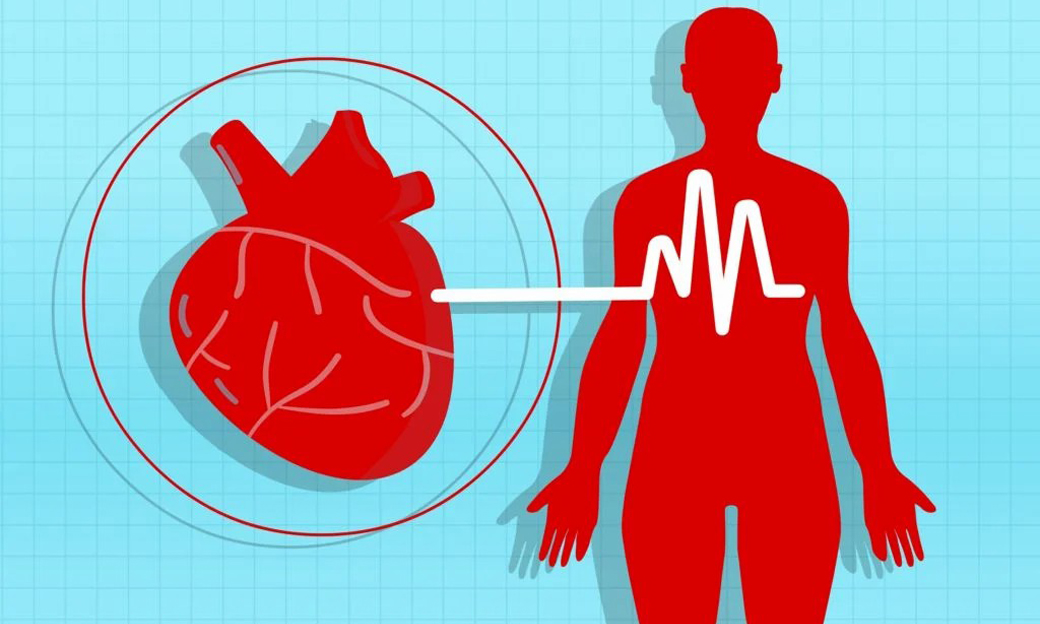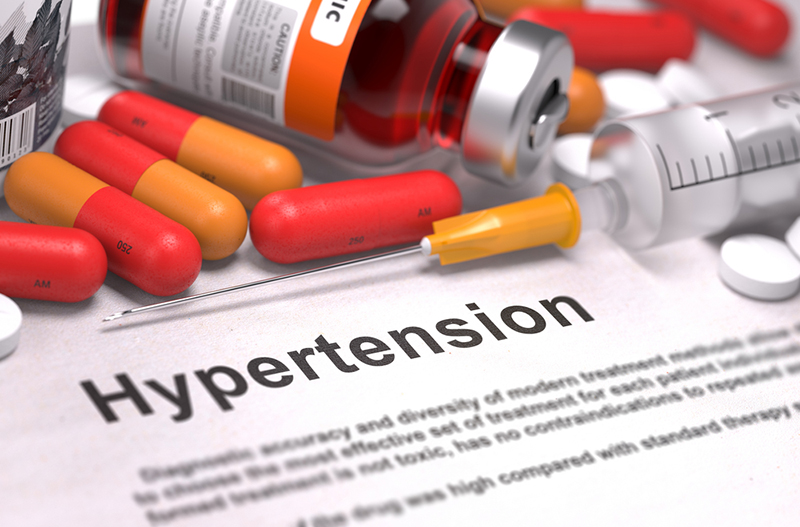
Resistant hypertension refers to high blood pressure that remains above the target level despite the use of three or more different classes of antihypertensive medications, including a diuretic. In practice, it’s defined as blood pressure that is not adequately controlled despite the patient’s adherence to prescribed medications, often requiring aggressive management. The condition is concerning because it significantly increases the risk of cardiovascular events such as heart attacks, strokes, and kidney failure. As the name suggests, resistant hypertension is particularly challenging to treat, and patients with this condition often experience worse outcomes compared to those with easily controlled hypertension.
Resistant hypertension is typically diagnosed after a series of blood pressure readings taken in a clinical setting, where the patient’s blood pressure is consistently above the normal range despite the prescribed treatment. Once confirmed, healthcare providers must work carefully to determine the underlying cause(s) and develop a tailored treatment plan.
Multiple Potential Causes of Resistant Hypertension
There are several factors and conditions that can contribute to the development of resistant hypertension. These causes can range from lifestyle factors to underlying medical conditions, all of which complicate blood pressure control.
1. Secondary Hypertension One of the most common causes of resistant hypertension is secondary hypertension. This occurs when high blood pressure is a result of an underlying health condition. Some of the more prevalent causes of secondary hypertension include:
● Chronic Kidney Disease (CKD): Damage to the kidneys can affect their ability to regulate fluid and sodium balance, contributing to elevated blood pressure.
● Hyperaldosteronism: Overproduction of the hormone aldosterone, often due to adrenal gland disorders, leads to sodium retention and fluid buildup, raising blood pressure.
● Obstructive Sleep Apnea (OSA): This condition causes repeated interruptions in breathing during sleep, which triggers surges in blood pressure.
● Pheochromocytoma: A rare adrenal tumor that produces excess adrenaline, increasing blood pressure.
● Renovascular Disease: Conditions such as renal artery stenosis (narrowing of the arteries leading to the kidneys) can cause secondary hypertension.
2. Medication Non-Adherence Another common factor in resistant hypertension is poor medication adherence. This occurs when patients fail to take their prescribed medications as directed, which can result from side effects, complexity of the medication regimen, forgetfulness, or misunderstanding the importance of their treatment. Without consistent medication use, it becomes difficult to control blood pressure effectively.

3. Inappropriate Medication Selection Sometimes, blood pressure is resistant because the medications being prescribed are not the most effective for the individual’s specific condition. For example, certain medications may not address the underlying cause of hypertension or might be less effective in patients with specific comorbidities. Switching or adding medications may be necessary to find the most suitable treatment combination.
4. Lifestyle Factors Lifestyle habits play a major role in managing blood pressure. Factors that contribute to resistant hypertension include:
● Excessive Salt Intake: High sodium consumption can cause the body to retain fluid, which increases blood pressure.
● Obesity: Excess weight contributes to high blood pressure by increasing vascular resistance and promoting fluid retention.
● Physical Inactivity: Lack of exercise is a known contributor to higher blood pressure.
● Chronic Stress: Stress can lead to temporary spikes in blood pressure and, over time, may contribute to sustained hypertension.
● Alcohol and Tobacco Use: Both smoking and excessive alcohol consumption are linked to higher blood pressure.
5. Genetic Factors Genetics also play a role in resistant hypertension. Some individuals may have a genetic predisposition to high blood pressure that makes it more difficult to treat effectively. Family history of hypertension can increase a person’s risk of developing the condition.

Available Medications for Treating High Blood Pressure
There is a wide array of medications available to treat high blood pressure, especially for individuals with resistant hypertension. Treatment typically involves a combination of different classes of antihypertensive drugs to target the multiple mechanisms contributing to elevated blood pressure. The following are commonly prescribed classes of medications:
1. Diuretics: Diuretics, particularly thiazide diuretics like hydrochlorothiazide, are often used as first-line therapy. They help reduce blood pressure by eliminating excess sodium and water from the body, which decreases blood volume and lowers blood pressure. In resistant hypertension, spironolactone, a potassium-sparing diuretic, is also often used to block aldosterone, which is responsible for sodium retention.
2. Angiotensin-Converting Enzyme (ACE) Inhibitors: ACE inhibitors, such as lisinopril or enalapril, work by blocking the enzyme responsible for converting angiotensin I to angiotensin II, a powerful vasoconstrictor. By inhibiting this process, these medications help relax blood vessels, thereby lowering blood pressure.
3. Angiotensin II Receptor Blockers (ARBs): Similar to ACE inhibitors, ARBs (e.g., losartan, valsartan) block the effects of angiotensin II directly on the blood vessels. They are typically used in patients who cannot tolerate ACE inhibitors due to side effects such as a persistent cough.
4. Calcium Channel Blockers: Amlodipine and other calcium channel blockers reduce the entry of calcium into muscle cells in blood vessel walls, causing the vessels to relax and lowering blood pressure.
5. Beta-Blockers: Metoprolol and other beta-blockers can be used in certain patients, especially those with heart disease, as they reduce the heart rate and the force of heart contractions, lowering overall blood pressure.
6. Aldosterone Antagonists: Spironolactone and eplerenone are especially useful for resistant hypertension, particularly when there is evidence of hyperaldosteronism or if the other medications have not been effective. These drugs block aldosterone, a hormone that increases sodium retention and fluid volume.
7. Direct Renin Inhibitors: Aliskiren is a medication that directly inhibits renin, a hormone involved in blood pressure regulation. It is not commonly used as first-line therapy but may be considered in resistant cases.

Additional Treatment Options
In addition to medications, patients with resistant hypertension often benefit from lifestyle modifications, such as:
● Dietary Changes: Reducing salt intake, following a heart-healthy diet (e.g., the DASH diet), and focusing on whole grains, fruits, and vegetables can help lower blood pressure.
● Exercise: Regular physical activity, such as aerobic exercise, can lower blood pressure by improving heart function and reducing arterial stiffness.
● Stress Management: Techniques like mindfulness, meditation, and yoga can help reduce stress, which in turn can reduce blood pressure.
● In some cases, medical procedures like renal denervation (a procedure to disrupt the nerves in the kidneys that contribute to high blood pressure) may be considered for those with treatment-resistant hypertension.

Resistant hypertension is a complex and multifactorial condition with a variety of causes, ranging from secondary hypertension and medication non-adherence to lifestyle factors and genetic predispositions. Successfully managing this condition requires careful evaluation of the individual’s health status and a comprehensive treatment plan. With the right combination of medications, lifestyle changes, and potentially advanced treatment options, patients with resistant hypertension can achieve better blood pressure control and reduce their risk of serious cardiovascular complications.
Subscribe means that you have read and agree to the Privacy Policy.
Subscribe means that you have read and agree to the Privacy Policy.
Copyright © Shenzhen Pango Medical Electronics Co.,Ltd, Ltd. All Rights Reserved.